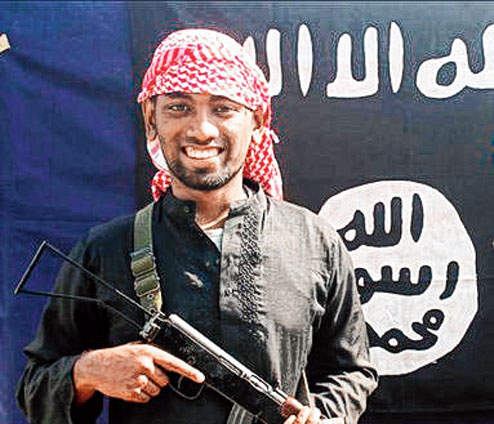
New Delhi, July 9: Wasima Parveen can't figure it out. Most Bangladeshis can't.
But on Monday, she and her colleagues will need to face thousands of students grappling with a single question: how did two students from their secular, liberal and elite school turn into brutal terrorists ready to kill people with very similar upbringings to their own?
Parveen, the director and chief operating officer at Scholastica school in Dhaka, will need to help the students find a way past the question, if not an answer, even as she struggles with it herself.
The presence of Rohan Imtiaz and Meer Saameh Mubasher, two former Scholastica students, among the six terrorists who killed 22 people at a popular café last weekend has dragged the popular Dhaka school to the centre of a global debate on the background of the attackers.
The stark differences in the values the school espouses and the actions of the terrorists suggest no evidence of any link between the education Imtiaz and Mubasher received at Scholastica and their decision to pick up knives and guns.

But the school that prides itself on its alumni knows it can't distance itself from these two - and must now prepare to brace current students on how to deal with the agony of their school showing up on search engines whenever people read about the Dhaka attack.
"We're all deeply traumatised," Parveen told The Telegraph from Dhaka. "But there is a lot of work we need to do now to make our students understand that we must keep our ideals, stick to them, no matter what happens around us."
Parveen and the school's co-owners, the brother-sister duo of Syed Maher Murshed, chairman, and Syeda Madiha Murshed, managing director, are planning a series of counselling sessions with students, their parents and teachers when the school reopens after the Id holiday on Monday.
These sessions, Parveen said, are aimed at answering the flurry of questions the school expects from parents and students. Some have already started filtering in, even during the ongoing holidays.
There can be no shying away from tough questions if the school - or Bangladesh - were to recover, she suggested.
"These are questions that, quite frankly, we as a country need to answer," Parveen said. "We will do our bit very seriously. This is absolutely essential."

Rebuilding the confidence of the school community is a key first step that Scholastica appears to have identified.
"We are proud of the bravery of the victims who stood up for their values even as they were confronted with death - the same humanistic ideals that are shared by institutions like Scholastica," Madiha Murshed said in a written statement sent by email to this newspaper.
The school, which boasts 5,000 students from pre-primary to high school, is unequivocal in its condemnation of the Dhaka attack, Madiha said. Yasmeen Murshed, the mother of Madiha and Maher, had started the school in 1977.
"We were deeply disturbed to find out that one or more of the terrorists had studied at Scholastica," Madiha said, adding that the Scholastica community was "shocked and saddened" by the attack. "Our hearts go out to the families and friends of the victims, and we send them our deepest condolences."
But the school and Bangladesh are also struggling with a larger question: did they miss signals that could have prepared them for the transformation of privileged, liberal educated youths to terrorists?
Parveen said the school administration had never received any report from teachers or other students to suggest anything violent or problematic about either Imtiaz or Mubasher. Imtiaz, whose mother teaches maths at the school, graduated in 2014 after completing his "A" level - equivalent to standard 12 in India - examinations. Mubasher never returned to class after school holidays in May 2015.

died in the Holey Artisan Bakery attack in Dhaka. (AP)
"They were just like any other students," Parveen said.
Better coordination between what parents teach children at home, and what the school encourages, may prove important going ahead, Parveen said.
"Sometimes, children get mixed signals - something at school, and something else at home," she said. "We want the same message, encouragement and guidance for the students at home and in school."
But the need to respond to the tough questions the school and Bangladesh face isn't restricted to helping students deal with the horrors of the recent attack, Parveen said.
"It's important, because this is not what we teach our young children," she said. "This is not what we teach in Bangladesh."










